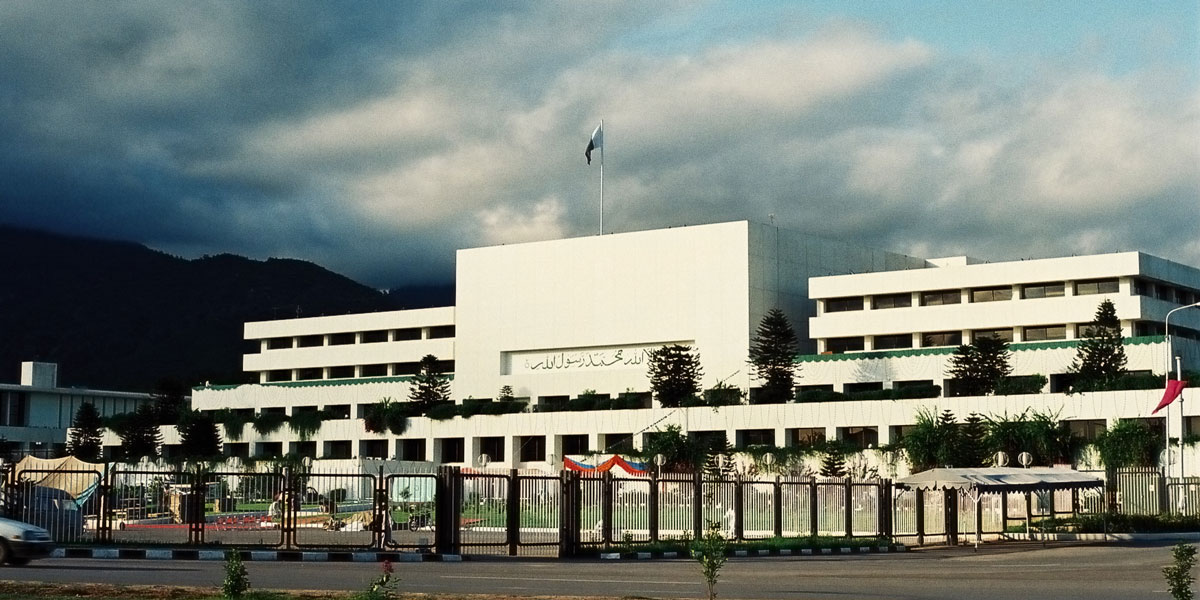Pakistan’s Ministry of Finance unveiled the 2025-2026 Federal Budget on 10 June, introducing significant tax reforms to boost revenue and regulate digital commerce. Key changes include reduced super tax rates, new digital transaction levies, increased withholding taxes, and adjusted personal income tax brackets.
Pakistan’s Ministry of Finance released the Federal Budget Documents for 2025-2026 on 10 June 2025, outlining major tax reforms aimed at increasing revenue and regulating digital commerce.
Corporate taxation
- Super tax reduction: The ‘Super Tax’ rate for corporations with annual income between PKR 200 million and PKR 500 million has been reduced by 0.5 percentage points. This is intended to provide relief to mid-sized and large corporations.
- Minimum tax carry forward: The period for carrying forward minimum tax credits has been shortened from three years to two years. Minimum tax at 1.25% of turnover is payable by resident companies and permanent establishments of non-residents if normal tax is lower. This change limits the time companies can offset minimum tax paid against future tax liabilities.
- Disallowance of expenses: 50% of expenditures attributable to cash sales exceeding PKR 200,000 will be disallowed. Purchases from non-NTN (National Tax Number) holders will be disallowed at 10%, incentivizing documentation and compliance.
- Withholding tax increases: General withholding tax rates for services have increased from 11% to 15%. For specified sectors, rates are revised to 6% or 8%, depending on the sector. Increase in withholding tax rate for profit on debt payments from 15% to 20%.
- Intangible assets: The useful life for amortizing intangibles with indefinite life has been reduced from 25 to 15 years
- Digital presence proceeds tax Act, 2025: A new 5% tax will be imposed on proceeds earned by foreign e-commerce providers. This tax will be withheld by banks, financial institutions, licensed exchange companies, and other payment service providers processing payments to these foreign entities for goods and services.
- Sales Tax Collection on e-commerce: New rules will require e-commerce platforms to collect and remit an 18% sales tax on applicable transactions.
- Construction sector withholding tax: The withholding tax rates for the construction sector have been reduced as follows:
- From 2.0% to 1.5% for tax filers;
- From 3.5% to 2.5% for non-filers;
- From 4.0% to 3.0% for certain other categories.
Digital transaction tax
- Digital transactions proceeds levy: A new levy has been introduced on proceeds from digital transactions, specifically targeting domestic vendors supplying digitally ordered goods and digitally delivered services. Banks and courier services are designated as withholding agents to ensure the entire payment chain is captured for tax purposes.
- Final withholding tax on e-commerce: A final withholding tax is proposed for Pakistan-based digital transactions on e-commerce platforms, further tightening tax compliance in the digital economy.
- Disclosure for banking companies: Provisions have been made to require more disclosure from banking companies to determine true and fair income and tax payable, likely impacting transfer pricing documentation and compliance for multinational banks.
Personal tax
- Income tax bracket adjustments for salaried individuals:
-
- Second bracket reduced from 5% to 1%
- Third bracket reduced from 15% to 11%
- The fourth bracket increased from 15% to 23%.
- High-income surcharge: The surcharge on individual taxable income exceeding PKR 10 million has been reduced from 10% to 9%.
- Interest income tax: The tax rate on interest income has been increased from 15% to 20%.














